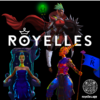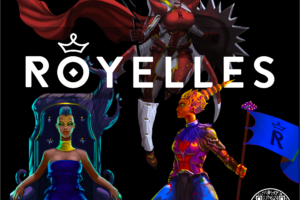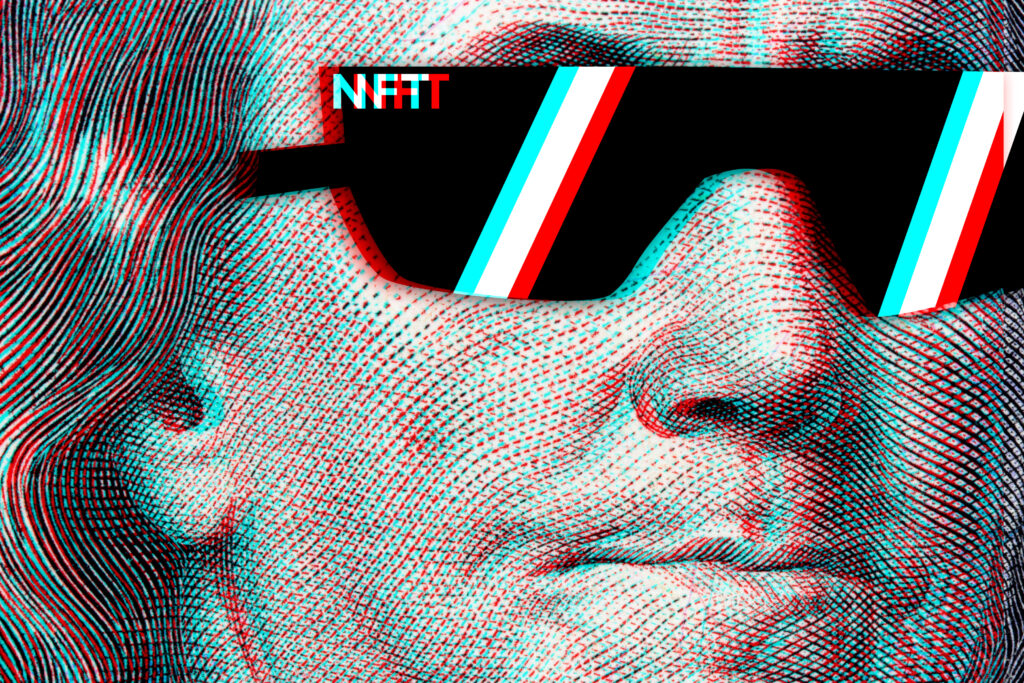
The nested potential of blockchain far exceeds what we see in today’s volatile cryptocurrencies.
If implemented effectively, this disruptive piece of technology represents a far greater opportunity to fundamentally change the way society organizes and secures its information.
At a high level, we can leverage the decentralized nature of blockchain in a variety of spaces to supplant the need for costly middlemen, eradicate fraudulent players, and instantly verify transactions – all of which are core benefits, inherent to blockchain, that can make industries radically more efficient. It is this exciting, not-so-distant future that is fueling entrepreneurs and investors from around the world to invest their time and funding in tackling real business problems with the power of the blockchain.
Gameflip, a vibrant digital goods marketplace with millions of users, recently announced their upcoming offering of FLIP, a crypto-token for peer-to-peer buying and selling of digital goods for games on all platforms. They are an example of an experienced team developing an innovative solution at the upslope of a hot market.
Perhaps most importantly, their solution is accelerating an inevitable shift in the marketplace that enhances the experience for all involved parties.
The digital goods opportunity is truly massive, and growing every year. Believe it or not, online gamers purchase nearly USD $100 billion in digital goods annually. The model works as follows: users play, invest, and compete in games to earn rare, digital collectibles, like weaponry and custom skins. While these items become illiquid (and practically valueless) once the game goes out of style or the user becomes disinterested, the digital marketplace has been booming as most casual and hardcore gamers obsess over earning collectible items.
Gamers spend immense amounts of time and money, building up their characters and harvesting special player upgrades…but if you cannot transfer the value of the assets after your hard work, then what is the true long term value?
The problem, however, is that the “gamer-earned goods” market is insanely underdeveloped, as there is no unified home for secure transactions of digital goods.
This is what initially inspired the launch of FLIP, as the Gameflip team had seen countless instances of passionate, dedicated gamers falling under the trap of losing their digital “investments.”
Other companies have identified and tried to work on this problem before. The popular Steam Community Marketplace attempted to address this problem by enabling the trading of digital goods on their platform. This, however, fell short – gamers want the ability to “cash out,” and not just earn market credits. So they turned to their only other option, which was random, unsecured forums such as Reddit, many of which were rampant with scammers and fraudsters.
Already, Gameflip has a 2 million member-strong global digital goods marketplace for gamers. Of which, they have over 500,000 active monthly users who conduct millions of transactions each and every month.
FLIP, their tokenized product, leverages the Ethereum blockchain and ERC-20 Token interface to provide a decentralized ecosystem for transaction digital goods through smart contracts. Effectively, the contract will automatically confirm ownership of the digital goods, enabling gamers to transact safely without risk. More than that, for perhaps the first time ever, gamers can truly own their digital goods with real value. Meaning they finally have access to liquidity when and wherever they want it, as they can sell and trade digital items for cash without the threat of fraud.
The FLIP team, having been former publishers themselves, also plans to incentivize game publishers to adopt this new model by issuing FLIP network growth tokens, with a built-in commission for each transaction made through their games. Publishers are crucial to the network effect and, ultimately, will be the gatekeepers towards universal adoption.
While their strategy for growth is ambitious, the Gameflip executive team brings with them more than a century of combined business experience, including decades in the gaming industry. They have successfully built, managed and architected, global, free-to-play gaming businesses like Aeria Games, meaning they understand the mechanics of the industry from the ground floor.
They are also backed by world-class investors, like Lightbank, and already have strong interest and active discussions from a handful of top global publishers. It will be exciting to see FLIP, among others, develop as implementations of crypto gain mass appeal. They will have their FLIP ICO main sale on Dec. 4 (as their pre-sale ended at 112% of our goal with over 3k ETH raised).
As momentum around blockchain technology continues to develop, we will begin to see more and more of the potential get exposed. This is truly just the start, as more entrepreneurs see innovative applications just waiting to be built. The question in all of us, as consumers and professionals, is which implementations will most affect us? Which are most likely to disrupt the world?
This article was originally published in The Huffington Post on November 16, 2017.
















I like the helpful information you supply in your articles.
I will bookmark your blog and test again right here regularly.
I am rather sure I’ll learn plenty of new stuff right right here!
Good luck for the following! https://vimeo.com/93283261
I like the helpful information you supply
in your articles. I will bookmark your blog and test again right here regularly.
I am rather sure I’ll learn plenty of new stuff right right here!
Good luck for the following! https://vimeo.com/93283261
Piece of writing writing is also a excitement, if you be familiar with after that you can write
if not it is complicated to write. http://lithorama.eu/000258-Hand-cut-stones.html
Piece of writing writing is also a excitement, if you be familiar with after that you can write if not it is complicated to write. http://lithorama.eu/000258-Hand-cut-stones.html
I think this is one of the most important information for me.
And i’m glad reading your article. But wanna remark on few basic issues, The website style is
ideal, the articles is actually excellent : D.
Excellent activity, cheers http://detective-zakynthinos.net/Detectives-Private-Investigators.asp?Code=003343
I think this is one of the most important information for me.
And i’m glad reading your article. But wanna remark
on few basic issues, The website style is ideal, the
articles is actually excellent : D. Excellent activity, cheers http://detective-zakynthinos.net/Detectives-Private-Investigators.asp?Code=003343
I savor, result in I found exactly what I was having a look for.
You’ve ended my 4 day long hunt! God Bless you man. Have a great
day. Bye http://spynet.gr/Index.asp?Code=000021.parakolouthisi_kinitou.html
I savor, result in I found exactly what I was having a look for.
You’ve ended my 4 day long hunt! God Bless you man. Have a
great day. Bye http://spynet.gr/Index.asp?Code=000021.parakolouthisi_kinitou.html
Hi there, I found your web site by way of Google
whilst searching for a comparable topic, your web site came up, it looks great.
I’ve bookmarked it in my google bookmarks.
Hi there, simply become aware of your weblog via Google,
and found that it’s truly informative. I am gonna be careful for brussels.
I’ll appreciate if you happen to proceed this in future. A lot of folks can be benefited out of your writing.
Cheers! https://www.dailymotion.com/video/x1s2174
Hello there! I could have sworn I’ve been to
this blog before but after reading through some of the
post I realized it’s new to me. Anyhow, I’m definitely glad I found it and I’ll be bookmarking and checking back frequently!
I do not even know how I ended up here, but I thought this post was good.
I do not know who you are but certainly you are going to a famous blogger if you are not already ;
) Cheers!
whoah this weblog is great i love reading your articles.
Stay up the great work! You realize, lots of individuals are searching around for this information, you could aid them greatly.